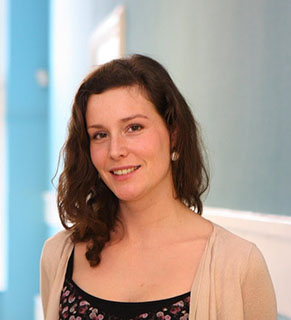Pleegkinderen willen hun verleden begrijpen
Jongeren die opgroeien in een pleeggezin hebben vaak heftige dingen meegemaakt, zoals fysieke mishandeling, verwaarlozing, verslaafde ouders of seksueel misbruik. Promovenda Anne Steenbakkers heeft aan jongeren en jongvolwassenen zelf gevraagd wat dit voor invloed heeft op hun leven en sociale behoeften. Het blijkt dat jongeren willen begrijpen wat er in hun verleden precies gebeurd is. Steenbakkers promoveert op donderdag 17 mei a.s. aan de Faculteit Gedrags- en Maatschappijwetenschappen van de Rijksuniversiteit Groningen.
Uit het onderzoek van Steenbakkers blijkt dat de jongeren veel negatieve gevolgen van hun verleden ervaren. De gevolgen die de voormalige pleegkinderen noemen, zoals depressieve of boze gevoelens en problemen met relaties, komen overeen met wat bekend is over (jeugd)trauma’s. Naast negatieve gevolgen noemen jongeren echter ook hoe hun verleden kan leiden tot positieve veranderingen, bijvoorbeeld omdat ze hierdoor sterker of zorgzamer zijn.
Vertrouwensband
Anne Steenbakkers vertelt: “Jonge mensen vinden het moeilijk om met negatieve gevolgen om te gaan, ze trekken zich bijvoorbeeld terug of kunnen opvliegend zijn. Ze willen graag snappen wat er allemaal gebeurd is; ze willen een compleet verhaal. Gesprekken met bijvoorbeeld een pleegouder, pleegzorgbegeleider of therapeut hierover zijn niet gemakkelijk, maar het helpt wanneer de ander interesse toont en er een vertrouwensband is opgebouwd. Voordat zij het met anderen willen delen, willen jongeren eerst goede gespreksvaardigheden ontwikkelen en niet meer sterk geëmotioneerd raken door hun verhaal. Moeten praten over het verleden heeft een averechts effect.”
Naast praten zijn er nog andere manieren om tegemoet te komen aan de behoeften van de pleegkinderen. Er zijn echter grote verschillen: waar de één veel aandacht heeft om het verleden te verwerken, richt de ander zich liever op de toekomst. Pleegouders en pleegzorgbegeleiders hebben niet altijd dezelfde visie hierop als pleegkinderen. Steenbakkers benadrukt in haar proefschrift het belang van jongerenparticipatie in de pleegzorg. Ook jongeren vinden dit belangrijk: ‘‘Ze zeggen: Een stem hebben, daar had ik vooral behoefte aan. Dat het aan me gevraagd wordt en dat je er dan samen naar kijkt”, aldus Steenbakkers.

Over Anne
Meer nieuws
-
17 februari 2026
Van ghostbuster tot rampenonderzoeker
-
03 februari 2026
‘Daar zit een goeie kop op’
-
20 januari 2026
Alcohol, appen en e-bikes
